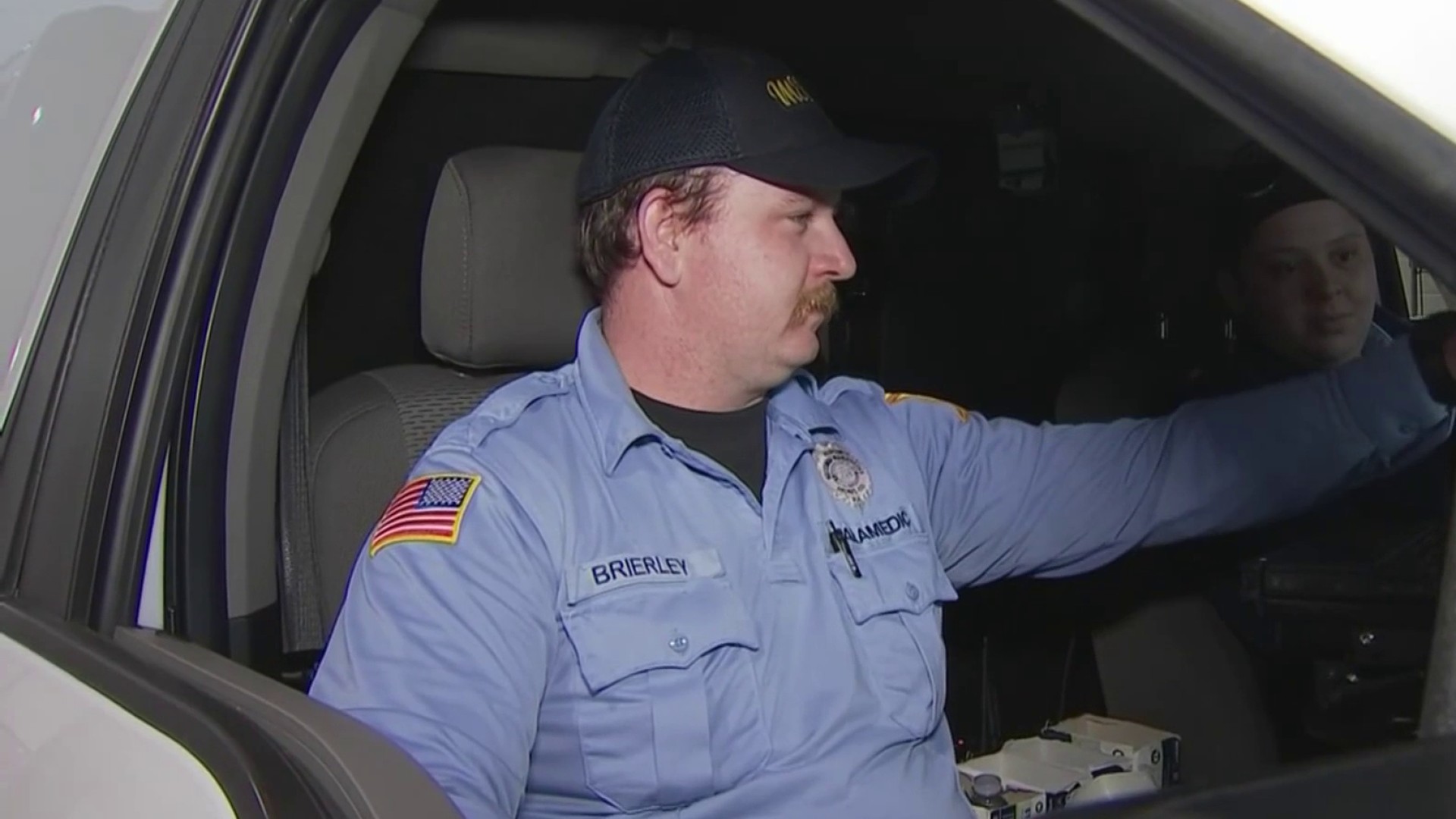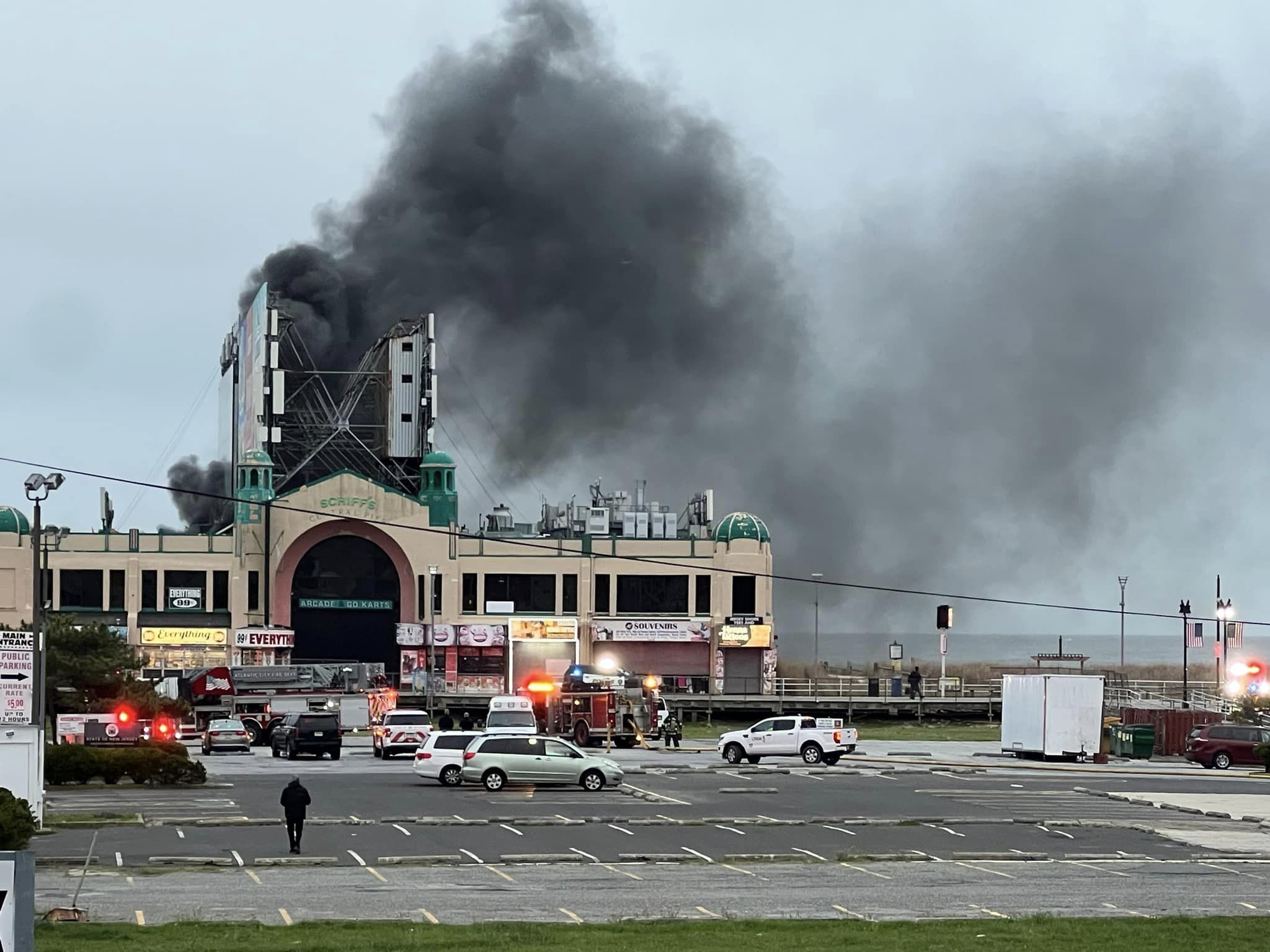THIS IS WHERE THE “REAL” DEBATE IS
Ask just about any climate scientist and they’ll tell you that the climate is warming, and most of that warming is due to human activity. Period. But ask if a record flood, or hurricane, or blizzard, or wildfire, or drought has been made worse due to climate change (or global warming, depending on which term you choose). You’ll probably get a lot of different answers. THIS is where debate among climate scientists is REAL.
It’s called “Attribution Science," and it is a rather recent development. For decades, climate scientists and meteorologists kept quoting the same line after each weather disaster: “No single extreme event can be blamed on global warming” (or something close to that). It quickly closed any debate environmental activists tried to start. It was easy. But it’s not easy anymore.
Computer models of future climate have long shown that the future will include:
*more (and worse) heat waves
*more (and worse) droughts
*more (and worse) floods
Local
Breaking news and the stories that matter to your neighborhood.
*more (and worse) wildfires
But the question always was: “How far in the future do we expect this increase to start? “ Many of us talked about how all these above things would happen in decades to come. But a series of incredible record events got some thinking differently. Had the expected future changes already started?
THE BLIZZARD OF ’96: THE TALK BEGINS
I remember questions about the possible effect of global warming on the Blizzard of ’96 in Philadelphia, when we broke our all-time snowstorm record by an amazing amount. The old record: 21.3”. The new record: 30.7”. How can a place with detailed records going back 120+ years break a record by so much? There were a lot of articles about the possible connection, even in our local papers:
….and many more….
But most scientists (including me) repeated the established line: “No single storm can be blamed on global warming.” We even did an in-depth special report on the possible connection. I got the chance to interview the late Dr. Jerry Mahlman, Director of the GFDL, a top government research organization. Even though he said, “The debate is over,” when it came to whether global warming was real (1996!), he scoffed at the idea that the blizzard was caused (or even significantly aided) by global warming.
MORE STORMS, MORE RECORDS, MORE MINDS CHANGED
As the 90s came to a close and the new century began, we started noticing more and more extreme weather-from heat waves and drought to record snowstorms-and incredible floods. With each event, our “defenses” got a bit lower.
All of the below happened in the U.S. There were obviously many others in different parts of the world (info from NCDC-National Climatic Data Center):
1998: severe drought/heat wave- kills 200
1999: severely dry and hot-kills 500
2000: drought/heat wave-kills 140
2001: remnants of Tropical Storm produce 30-40 inches of rain
$11 billion damage-kills 43
2003: record 1-week total 400 tornadoes-kills 51
2004: series of hurricane strikes in Florida-kills more than 150
More than $70 Billion damage
2005: Katrina-kills 1800+. Damage $154 billion
2006: numerous wildfires-kills 28. Record area burned
2008: 2 separate tornado outbreaks-kills 70. Total 320+ tornadoes
2008: massive flooding in Midwest-kills 24. Damage $11 billion
2008: Hurricane Ike (largest on record)-kills 112. Damage $33 billion
2011: Blizzard Midwest to Northeast-kills 36
2011: 4 massive tornado outbreaks-kills 545. Total 746 tornadoes
2011: Drought/heat wave-kills 95. Damage $13 billion
2012: 6 separate outbreaks with 20+ tornadoes-Damage $17 billion
2012: Superstorm Sandy-kills 159. Damage $68 billion
2012: Drought/heat wave-kills 123. Damage $31 billion
2013: Drought/heat wave-kills 53. Damage $11 billion
This was a 15 year period that started getting more and more meteorologists and climate scientists wondering more and more about whether we can ATTRIBUTE at least some of those events to the changing climate.
We started hearing experts saying that “the dice are loaded” toward more extreme events, and that “it’s the atmosphere on steroids." And those who didn’t agree with those statements had to say it over and over. Every time a major disaster occurred, the debate rose up again.
ATTRIBUTION SCIENCE
But most of us needed something more than suspicions. We needed to see a concrete, specific reason for the extremes. What is the cause and effect relationship?
One of the first widely publicized studies was from Dr. Jennifer Francis of Rutgers. As you saw above, the year 2012 had numerous extreme events, and that was the year her research became known:
Her theory was that the rapid ice melt in the Arctic was causing:
1. Warming in the Arctic (more of the sun’s rays get absorbed in water than over ice)
2. This leads to less of a temperature contrast from the Arctic to the mid-latitudes and tropics
3. Since jet streams are related to temperature differences, they become “wavier," instead of more west to east
4. This leads to more cut-off LOWS in the upper atmosphere
5. Which leads to more intense and slow-moving storms
That seemed like a reasonable cause and effect, and later papers expanded on that theory. It even helped explain the unprecedented sharp left turn that Sandy took. Since her papers came out right around that time, they gained even more publicity. And, in time, other climate scientists either agreed with the theory or did their own research that agreed with it.
That seemed like a reasonable cause and effect, and later papers expanded on that theory. It even helped explain the unprecedented sharp left turn that Sandy took. Since her papers came out right around that time, they gained even more publicity. And, in time, other climate scientists either agreed with the theory or did their own research that agreed with it.
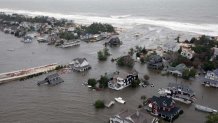
MORE RECORD FLOODS, HEAT, WILDFIRES, TYPHOONS, ETC.
So now, every record-smashing event seems to be tied to climate change. Just recently, the devastating floods in Ellicott City, MD and Louisiana have been added to the list. And, at the same time, major wildfires were hitting California-again.
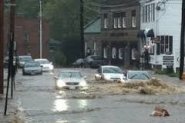
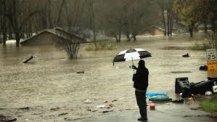
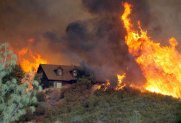
IT’S NOT THAT SIMPLE
Yes, it would be easy to say that every record event in weather has been created, or made worse, by climate change. But we’ve seen extreme weather and record weather ever since the beginning of time. Weather is naturally variable, so how can we tell that any single one has an “unnatural” aid? Attribution Science is trying to answer those questions.
Below is one such attempt-from the National Academy of Sciences. Some types of extreme events have more obvious ties to climate change than others. Note how both extreme heat and extreme cold are at the top of the list.
[[391086101, C]]
SO, WHAT WAS THE CLIMATE CHANGE IMPACT ON LOUISIANA FLOOD?
It will take months of research for respected scientific papers to come out and see how much of a tie there is to climate change. Attempts are being made for those attribution studies to come faster than they used to.
Was there more moisture in the atmosphere because of the increase in water vapor due to climate change? Yes. But was it enough to say that there wouldn’t have been devastating flooding without climate change? The added moisture probably made it worse, but was it 2% worse, 20% worse, or more? The science is still too primitive to say with confidence.
Below are a few articles related to this subject, if you’re interested in more detail.
These extremes of the past 15-20 years have me wondering if 15-20 years from now, scientists will be wondering how we missed such obvious changes in our climate. By then, the extremes of today may seem modest by comparison.
Glenn “Hurricane” Schwartz,
Chief Meteorologist, NBC10 Philadelphia

